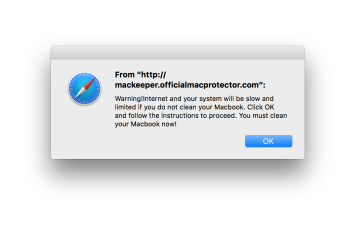The biggest nightmare for me is having my websites inaccessible for public. This had happened in the past, and it will happen no matter how good your hosting or programmers are. There are many reasons:
Bad code makes website database corrupt
Database table went corrupt, or mysql is down
Apache is down
The whole server is down or compromised
You are in middle of DOS attack
Your DNS servers are down or domain has expired
You forgot to pay for hosting or your hosting company has problems
And a lot of many other problems that you can’t imagine before seeing them happen.
Typically, these problems happen in middle of the night, on weekend and when you are not on PC. How to prepare for them?
1. Create a list of people that can bring your server up. That is you, your admins, maybe hosting company. It depends on your infrastructure. Also put down their phone numbers, contacts, working times. Lots of time losses could be solved if the people working with websites would always know whom and how to contact. Make sure each of these people know how to solve common problems like restart the server or know whom to contact in cases they can’t do that.
2. Use at least one monitoring service (like host-tracker.com, webmetrics, etc) or install 2 of monitoring softwares (like nagios) on your servers. If you got one server only, you have to rely on remote monitoring service. The problem is you have limited options on notifying someone from server that has high load or other heavy problems already. Your notification system should work if any of your servers is down. You can purchase a low-cost VDS server and run nagios from there if you got one server only. Check if your hosting company provides some monitoring, however you should implement some simple monitoring outside your hosting company as well. Sometimes the hosting company goes down completely, although it is rare cases.
3. SMS/pager notifications are the best way to be informed in my opinion and you should not rely too much on email notifications. There are some desktop applications as well.
4. Consider hiring server administration from company rather than hiring single admin. Just make sure the company has couple admins and at any time during the day there is a person responsible that supervises servers. Hiring administrator is better when there are larger amount of servers and you can afford hiring more than one of them.
5. Have a backup and worst case plan. What is worst case? Just imagine your hosting company went down. What would you do next? You should have backups in reliable place (like NAS) and alternatives for any companies you work with that are related to your hosting.
Anything else? Comment bellow.
The biggest nightmare for me is having my websites inaccessible for public. This had happened in the past, and it will happen no matter how good your hosting or programmers are. There are many reasons:
- Bad code makes website database corrupt
- Database table went corrupt, or mysql is down
- Apache is down
- The whole server is down or compromised
- You are in middle of DOS attack
- Your DNS servers are down or domain has expired
- You forgot to pay for hosting or your hosting company has problems
- And a lot of many other problems that you can’t imagine before seeing them happen.
Typically, these problems happen in middle of the night, on weekend and when you are not on PC. How to prepare for them?
- Create a list of people that can bring your server up. That is you, your admins, maybe hosting company. It depends on your infrastructure. Also put down their phone numbers, contacts, working times. Lots of time losses could be solved if the people working with websites would always know whom and how to contact. Make sure each of these people know how to solve common problems like restart the server or know whom to contact in cases they can’t do that.
- Use at least one monitoring service (like host-tracker.com, webmetrics, etc) or install 2 of monitoring softwares (like nagios) on your servers. If you got one server only, you have to rely on remote monitoring service. The problem is you have limited options on notifying someone from server that has high load or other heavy problems already. Your notification system should work if any of your servers is down. You can purchase a low-cost VDS server and run nagios from there if you got one server only. Check if your hosting company provides some monitoring, however you should implement some simple monitoring outside your hosting company as well. Sometimes the hosting company goes down completely, although it is rare cases.
- SMS/pager notifications are the best way to be informed in my opinion and you should not rely too much on email notifications. There are some desktop applications as well.
- Consider hiring server administration from company rather than hiring single admin. Just make sure the company has couple admins and at any time during the day there is a person responsible that supervises servers. Hiring administrator is better when there are larger amount of servers and you can afford hiring more than one of them.
- Have a backup and worst case plan. What is worst case? Just imagine your hosting company went down. What would you do next? You should have backups in reliable place (like NAS) and alternatives for any companies you work with that are related to your hosting.
Anything else? Comment bellow.



0 Comments